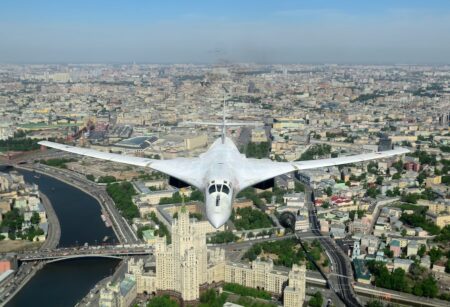
An interesting observation regarding Ukraine’s drone attack on Russian air bases is that all nuclear bombers were located outdoors, which of course simplifies an attack. The reason for this is that the planes must be observable via satellite, in accordance with an agreement with the United States. Both sides must be able to see each other’s strategic bombers, the number of which is regulated by nuclear weapons agreements.
The idea that the Ukrainians carried out the attacks on their own is virtually impossible. They most likely received assistance from NATO countries – perhaps even directly from Washington. Exactly how the operation was conducted has not been revealed. Donald Trump has yet to comment on the incident.
The Russians will likely no longer position their bombers out in the open. That agreement is probably null and void. As a result, we no longer know how many strategic bombers each side possesses. Who ultimately benefits from this remains unclear.
It now appears that it wasn’t 40 planes destroyed, as initially reported, but fewer – perhaps 5 to 7. Still, the drone strike represents a significant escalation of the conflict in Ukraine. Similar provocations did not occur during the Cold War, when both sides adhered more closely to agreements, largely out of self-preservation. This incident may be explained by political arrogance – or even ignorance. In any case, we can expect Russian retaliation.
Clearly, there are forces that not only want the war in Ukraine to continue – they want it to escalate.
I meet quite a few Ukrainians; many of them are pro-Russian, and in fact, Russia has taken in more Ukrainian refugees than any other country. From what I understand, opposition to Russia is strongest in western Ukraine – where historical animosity runs deep – while people in the east tend to be more Russia-friendly. Those in the middle seem more like political opportunists. Russia has made it clear from the beginning that it wants regime change in Kyiv. As the war nears its end, Kyiv faces a choice: remain the capital of a divided nation in crisis – or become the third-largest city in an empire?
At the outset of the conflict, Russia could have taken out Ukraine’s power plants using its newly developed hypersonic or conventional missiles and bombed cities into ruins – which would have framed the war quite differently. But they chose not to, likely because they view Ukrainians as a brotherly people, and because many Ukrainians are, in fact, ethnically Russian. From what I gather, the differences between the two countries’ languages and cultures are smaller than those between, say, the southern and northern provinces of Sweden.
Furthermore, I believe NATO has lost this war. It has poured billions of dollars into Ukraine in the form of weapons, vehicles, intelligence, training, and military advice – yet failed to stop the Russians. Meanwhile, the BRICS nations have grown stronger, expanded in number, and developed their economies, while we in the West are facing serious financial and societal challenges. We used to lead in many areas, but threw it all away through a senseless proxy war that accelerated our decline.
In other parts of the world, the media narrative is completely different. There, the U.S. and NATO are seen as the aggressors, and the conflict is viewed as having begun in 2014 with an Western-orchestrated coup against Ukraine’s democratically elected president. Television broadcasts show interviews with George Soros, proudly stating that Ukraine was the first country where his organizations operated. And Joe Biden is seen laughing dismissively at Ukrainian officials who wanted to investigate his shady dealings. We in the West need to recognize that our version of events is not universally accepted – it is even described by some as a deliberate lie.
We now find ourselves in a situation where Russia’s strategic bombers have been attacked deep within its territory. Most people rightly suspect that Ukraine could not have pulled this off without Western help – with U.S. satellite data likely playing a decisive role. Whether that information came directly from Washington or through intermediaries remains unknown.
Many are now asking: how far will this go? And what role does Donald Trump play in all of it?
Are we heading toward a third world war?







